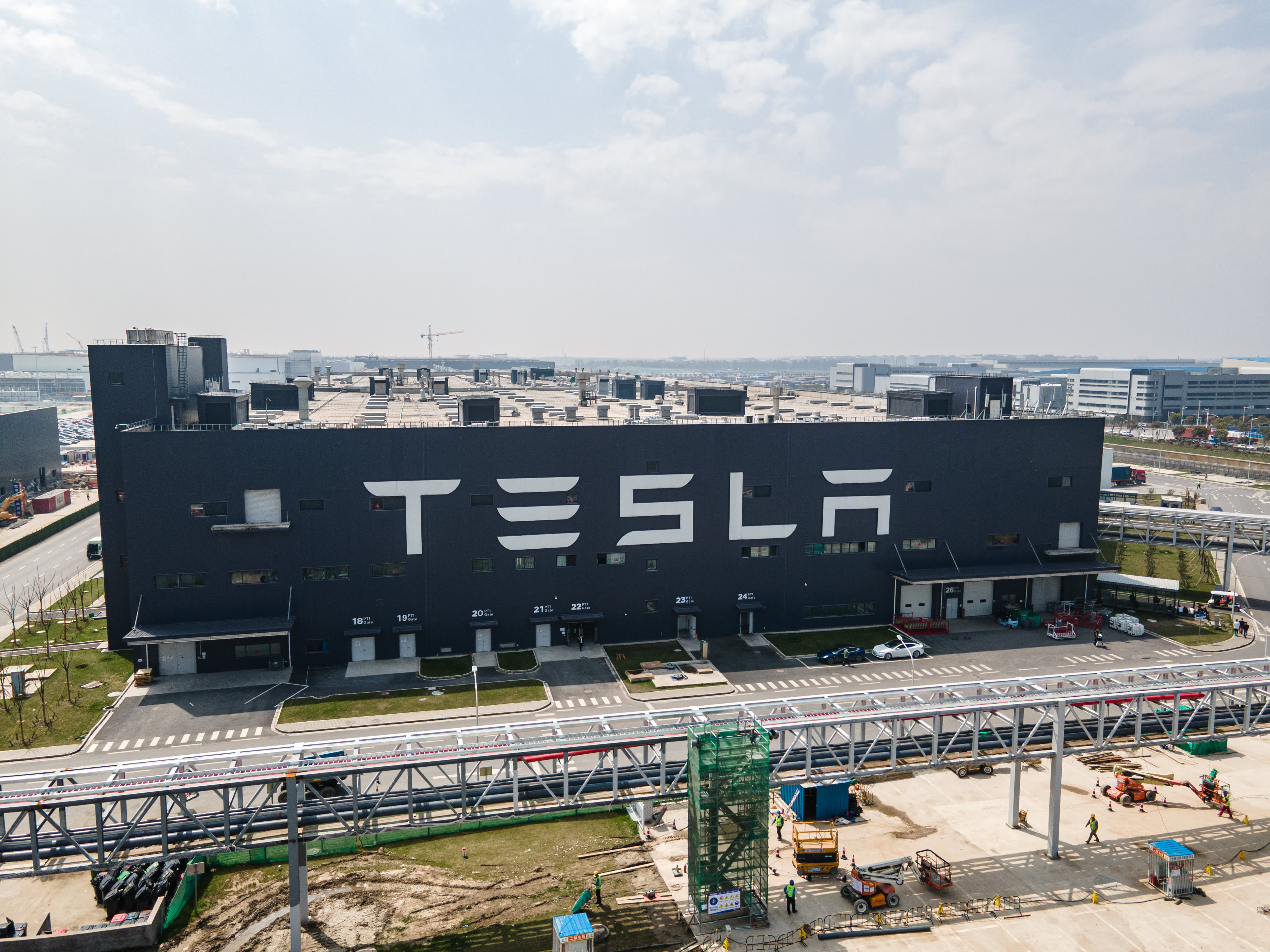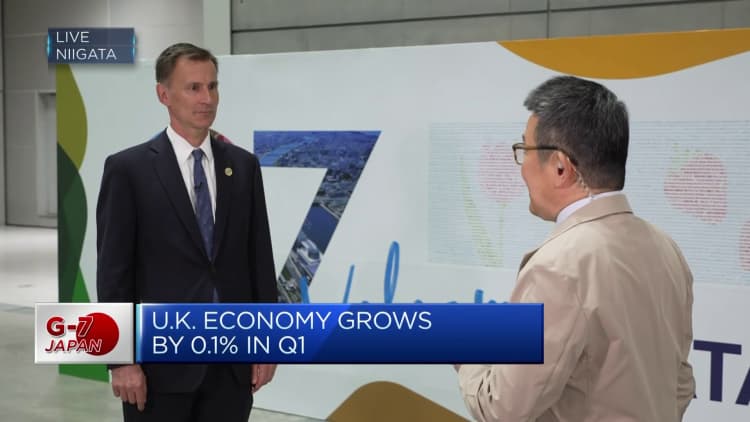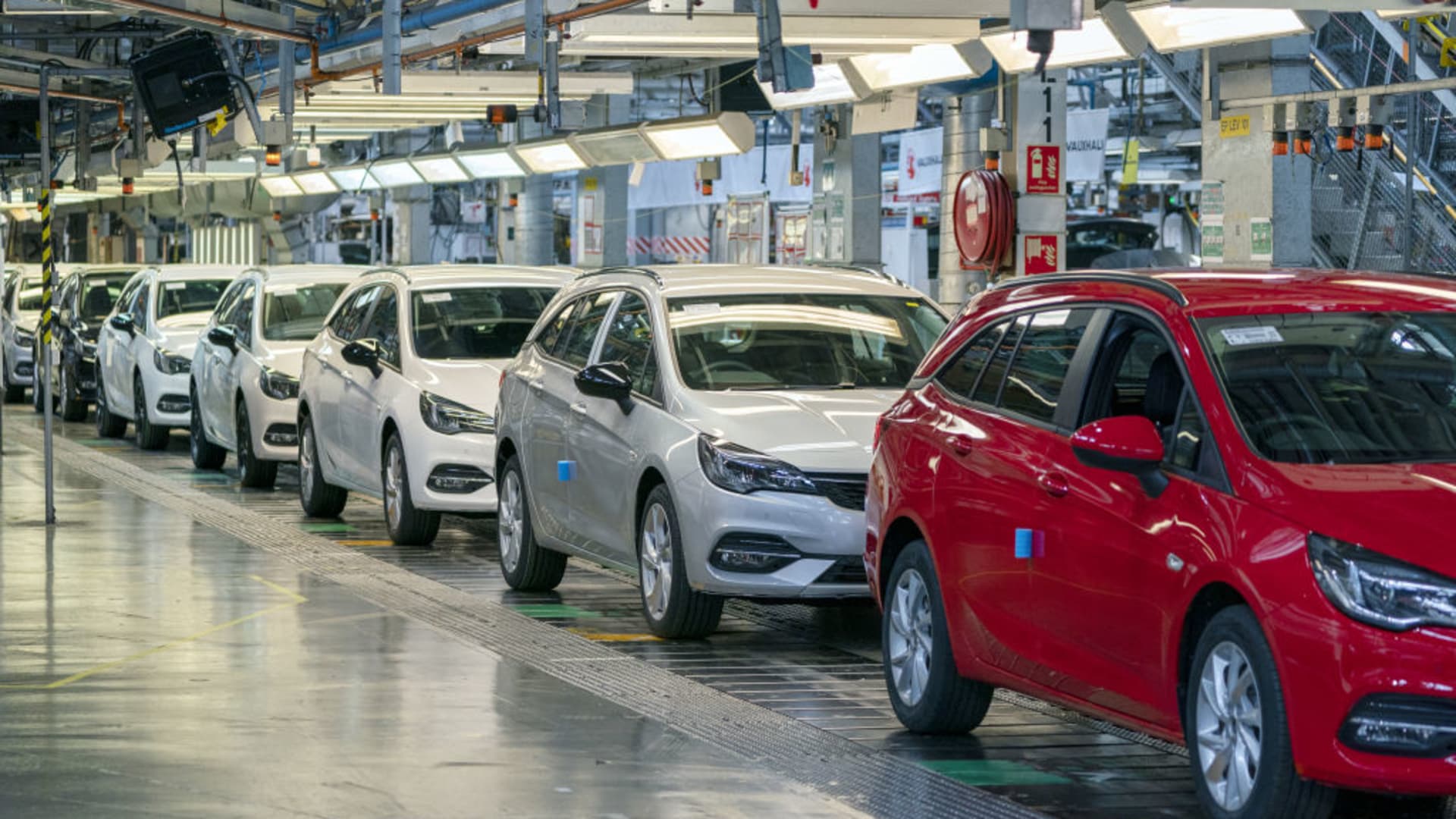Generic stock image of the Astra assembly line at Vauxhall’s Ellesmere Port factory in Cheshire. Image date: Tuesday 6 July 2021.
Peter Byrne – Pa Images | Pa Images | Getty Images
London – executives from starThe car-making giant behind brands including Peugeot, Chrysler and Citroen will meet British ministers on Wednesday, warning that post-Brexit trade arrangements seriously jeopardize its business in the country.
Stellantis makes Vauxhall, Fiat, Opel and other cars at two factories in the UK and employs more than 5,000 people. It plans to move toward majority and 100% electric vehicle production as it rolls out electrification across its brands.
Related investment news


In its report to the government investigating car battery production, the company said it would be at a competitive disadvantage in the future due to tariffs on batteries shipped between the UK and continental Europe.
“Operations will close if the cost of electric vehicle manufacturing in the UK becomes uncompetitive and unsustainable,” it said, citing a previous decision bmw group Moving electric Mini production to China, and Honda investing in electric car production in the US after its UK factory closed.
The EU-UK trade and cooperation agreement provides a grace period for batteries and electric vehicles before comprehensive rules-of-origin tariffs come into force to address these procurement challenges. However, they will gradually become more stringent over the next few years, rising to 45% and then 65% in terms of required domestic production. Otherwise, automakers face a 10% export tariff on electric vehicles.
Stellantis said that if it produced batteries in China and continental Europe as currently planned over the next few years, it would face “higher logistics costs” which would threaten “the sustainability of our UK manufacturing operations”.
The company has warned that there are not enough supplies of the material in the UK to support car battery production. While this is also an issue in continental Europe, where much of the supply comes from China, Stellantis noted that it has invested heavily in gigafactories in France, Germany and Italy, where it has a battery joint venture.

It wants the government to negotiate with EU officials to maintain the current rules until 2027.
With the establishment of the European Battery Alliance, the EU and its members have increased their focus on electric vehicle production and plan to release State aid rules around green manufacturing were created in part in response to the landmark inflation reduction bill in the United States.
Earlier this week, French President Emmanuel Macron hosted tesla Chief Executive Elon Musk is trying to attract investment in the country.
The UK has made some progress in electric vehicle and battery production, with plans to build a large lithium refinery in the north of England and Nissan building a battery gigafactory with Chinese partners; narrowly escaped from the government earlier this year.
The committee hearing sought to pave the way for the future of electric vehicle production in the country with the Automotive Transformation Fund.
“We’ve been sleeping on bringing the battery factory to the UK,” Andy Palmer, Nissan’s former chief operating officer and chairman of electric car battery maker Inobat, told the BBC on Wednesday.
Mike Hawes, chief executive of the Association of Motor Manufacturers and Traders, said rules of origin for batteries “pose a significant challenge for manufacturers on both sides of the Channel, with tariffs and the prospect of higher prices deter consumers from purchasing the products much needed to meet climate change goals.” vehicle.”
“Practical solutions must be found quickly, at a time when every country is accelerating its transition to zero-emissions transport and global competitors are offering billions of dollars to attract investment in their industries,” Hawes said.


